In this digital world, fear spreads faster than the truth. Ryo Tatsuki, a former manga artist, has scared millions of people about a possible tsunami in July 2025 just because of her nightmares. Many travel agencies say that bookings to Japan have dropped by as much as 50%. The travel industry in the country is already feeling the effects of this drop. The 70-year-old artist says that the sea south of Japan will “boil,” which would generate a huge tsunami that could affect a lot of Asian countries. But don’t change your plans for the holidays just yet; there is no scientific confirmation that her prediction is correct. Sometimes dreams are just dreams.
What is Ryo Tatsuki?
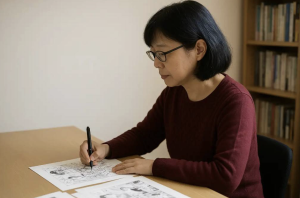
In the 1980s, Japanese manga artist Ryo Tatsuki started having strange nightmares about disasters. She made a comic book called “The Future I Saw” out of her dreams in 1999 and kept them in a notepad. The book didn’t get much notice until March 2011, when Japan was hit by a huge earthquake and tsunami. Her book was out in a month, and she became renowned right away. People now call her Japan’s new Baba Vanga, after the famed Bulgarian mystic who correctly predicted things like 9/11 and Princess Diana’s death before she died in 1996. She is currently 70 years old.
What does the prediction for July 2025 mean?
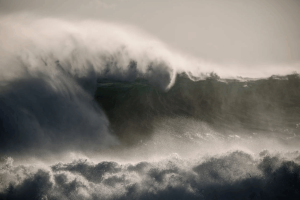
The Japanese Baba Vanga observed the Pacific Ocean south of Japan bubbling like boiling water in her most recent dream. She believes that this vision is about a volcano eruption under the ocean that will produce a large tsunami. She claimed that the disaster will strike a diamond-shaped area that includes Japan, Taiwan, Indonesia, and the Northern Mariana Islands. She claims that the tsunami will be three times worse than the one that devastated Japan in 2011 and killed more than 18,000 people. Tatsuki added this caution to a new edition of her book in 2021. The prediction has subsequently spread quickly on social media, making many people who might want to travel scared.
The travel business is harmed.
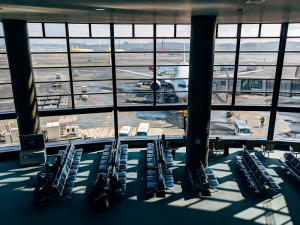
There is no scientific basis for Tatsuki’s prediction, but the economy is already feeling its impacts. According to CN Yuen, the managing director of WWPKG travel agency, “bookings to Japan dropped by half during the Easter holiday” and are anticipated to decline much more in the coming several months. Travel agencies all around Asia said that consumers are canceling or putting off trips they had booked for July 2025. Some tourists are changing their plans to stay away from the area that is prone to disasters. Hotels and airlines in the vicinity are already losing money. People are saying they “want to hold off their trip for now” because these predictions have made them “ingrained.”
A look at Ryo Tatsuki’s “Track Record”
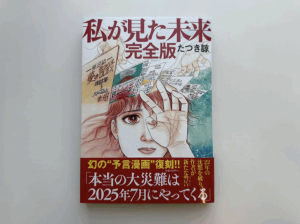
People claim that Tatsuki dreamed about a lot of major disasters, which is how she acquired her name. People who believe in her say she foretold the deaths of Freddie Mercury in 1991, the Kobe earthquake in 1995, the tsunami in Japan in 2011, Princess Diana’s death in 1997, and even the COVID-19 pandemic. People who believe in her are more likely to accept her now that she has made these so-called predictions. Many of them are now quite serious about her prognosis of a tsunami in 2025. Her book became a very desirable collector’s item after 2011, and copies sold for high prices online. Millions of people around the world now consider her as a trustworthy prophet because of social media.
The Truth About Her “Right” Predictions
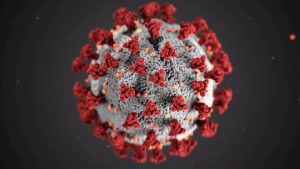
If you look at it more thoroughly, you might discover that Tatsuki’s reputation has risen more from lies and misunderstandings than from true predictions. Someone pretending to be her tweeted her widely circulated COVID-19 “prophecy” on Twitter in 2020, not Tatsuki herself. That account had duplicated Dean Koontz’s book The Eyes of Darkness, which came out in 1981. By the time Tatsuki’s book came out in 1999, a lot of the things she said would happen had actually happened. Some people say that her visions are “too vague to take seriously.” Most of what she calls her “accurate track record” comes from social media hype and looking back at things.
The Princess Diana Prediction Mystery

Japanese Baba Vanga’s prediction that Princess Diana will die is one of the most talked-about ones. People who support her say she wrote, “Diana? She wrote the words “Diana?” “Died?” was written in her diary on August 31, 1992, exactly five years before Diana died in a car accident on August 31, 1997. If you look closely at her original manga comic from 1999, you may notice the word “DIANNA” very faintly printed in the background of one panel. There is no confirmation that this diary note was real, and a lot of people thought this vague reference was a prophecy after Diana died. This example indicates that people might subsequently label anything a “prediction” if they don’t know what it implies.
Ryo Tatsuki What Scientists Say About Making Predictions
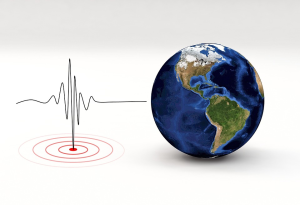
Scientists and geologists don’t utilize dream diaries to predict disasters; they employ instruments and data from the planet. Japan’s Meteorological Agency keeps an eye on seismic activity all the time and hasn’t issued any warnings for July 2025. The Japanese Cabinet Office remarked, “Modern technology has not yet been able to accurately predict an earthquake.” You need to see signals that something is about to happen, such odd seismic swarms, changes in the ground, or changes in volcanic activity under the water, in order to make real predictions. None of these things are going on right now. Japan lies in the Pacific Ring of Fire, which is a place where earthquakes happen a lot. But to make accurate forecasts, you need to analyze data over a long period of time and use better monitoring tools. Both travelers and investors can feel better knowing that there are no public warnings from trustworthy authorities.
What You Need to Know About Predictions From dreams:
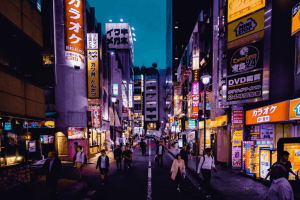
The fear that emerged from Japanese Baba Vanga’s forecast for July 2025 shows how erroneous information can affect the economy. There isn’t much indication that she is a real prophet, but misleading claims and falsehoods on social media have made her more famous. People who supposed to be her made up a lot of false predictions, copied text from books, or talked about things that had already happened. Tatsuki told people not to be “too swayed” by her dreams and to “act appropriately based on expert opinions.” People should talk to professional scientists before making important decisions based on prophesies. Trusted government authorities and seismic monitoring groups agree that Japan is still a safe place to visit. Fear may spread faster than facts, but in the end, we should make our choices based on facts.
